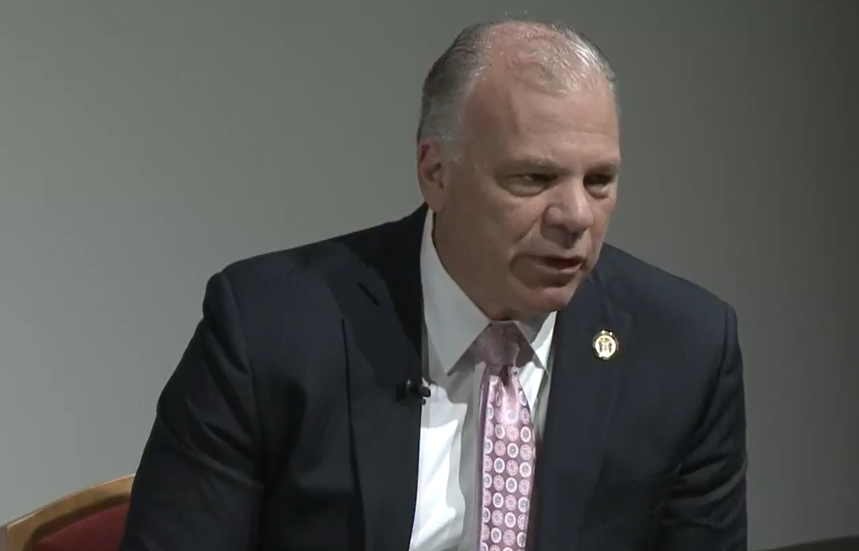Sweeney Endorses Disclosure Requirements for Independent Advocacy Organizations: 'This Is One Where We Agree'

TRENTON – Senate President Steve Sweeney announced today his support for legislation that would require independent advocacy committees to disclose their donors, bringing greater transparency to organizations that work to influence the process of government. Senator Sweeney is endorsing a bill already introduced by Senator Troy Singleton that would have so-called “527 and 501(c)4 groups” make public their sources of contributions and expenditures.
“We need to bring greater transparency and accountability to the organizations that work to influence the actions of government that have an impact on the lives of the people of New Jersey,” said Senator Sweeney. “If they are attempting to advocate for favored policies, influence the fate of legislation or direct state regulations, the public has a right to know. Full disclosure will improve the process of government and enhance public confidence.”
Senator Sweeney said that he will work with Senator Singleton to strengthen the bill by expanding the disclosure requirement to include advocacy or opposition to proposed or existing legislation or regulations, and to cover all contributions retroactive to January 1, 2018.
“I have reviewed Senator Singleton’s proposed legislation and I have also reviewed Governor Murphy’s similar call for more disclosure and transparency,” said Senator Sweeney. “While there have been areas of disagreement between the Governor and me of late, this is one area where we agree. I am going to move Senator Singleton’s bill and propose that it be strengthened to cover all contributions retroactive to January 1, 2018 and expand it to include the advocacy or opposition to proposed or existing legislation and proposed or existing regulations.”
Senator Singleton’s bill, S-1500, would revise "The New Jersey Campaign Contributions and Expenditures Reporting Act" to institute new reporting requirements for the organizations that attempt to influence the outcome of any election or the nomination, election, or defeat of anyone for state or local elective public office, for any public question, or to provide information on any candidate or public question. It would cover any organization that raises or spends $3,000 or more for this purpose and require information on each contribution and expenditure in excess of $300.





